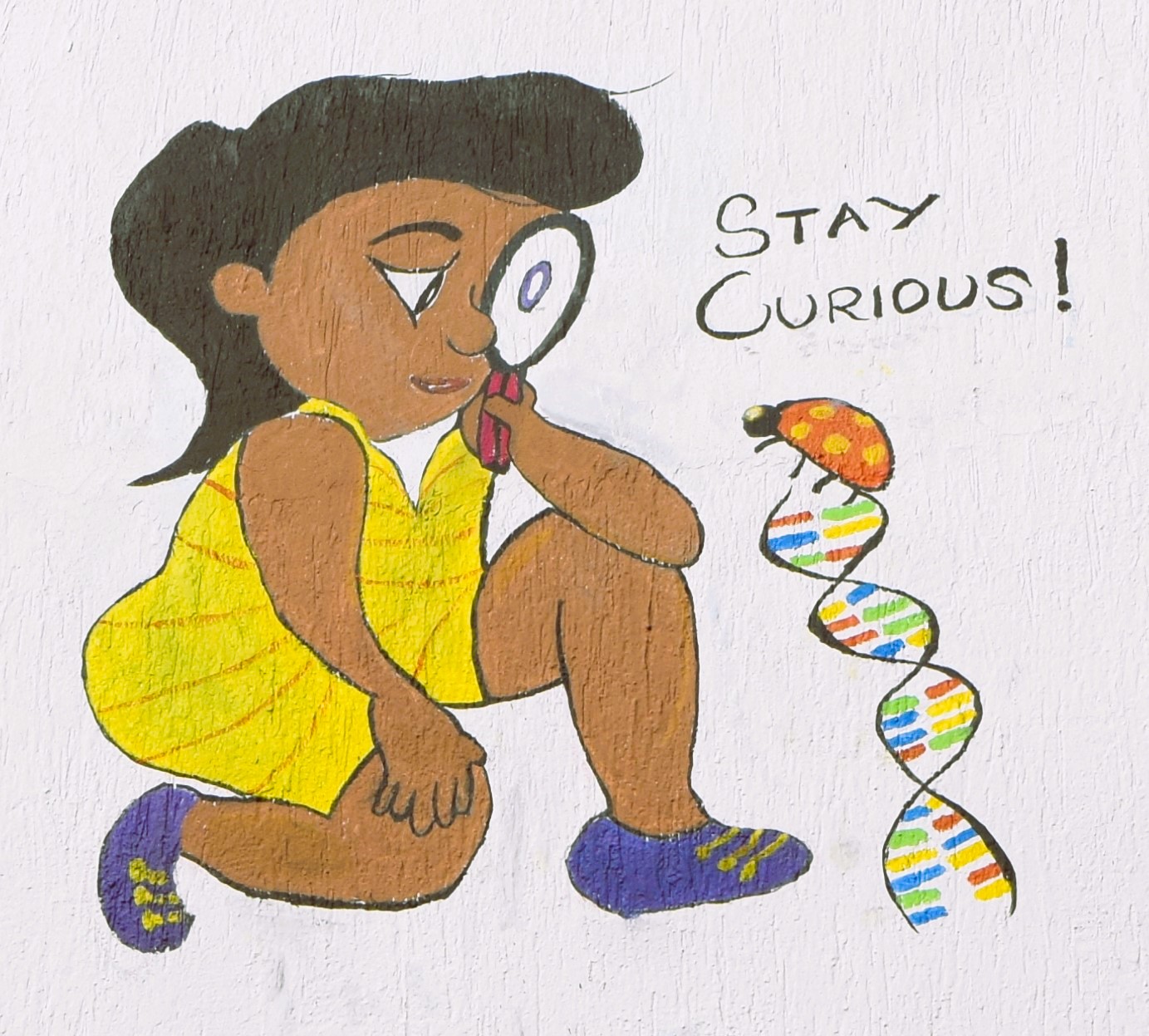Photo credit: Aastha Vatsyayan; Painting credit: Manoj Kumar
As kids we all remember how curious we were about the things we see and hear. If someone tells a kid that eating vegetables helps you stay healthy, they will be very quick in asking how. As we grow, we become conscious about indulging our curiosity and asking questions. But the fact remains that only people who do not fear asking questions, possess the zeal to find the answers for it. The major reasons for the lack of curiosity might be because of the immense responsibilities and the fear of an unknown future that comes with the transition from childhood to adulthood. It is important to address the emotional adjustments that are needed to be made to make this transition easier for the youth and help them understand their potential in developing a better future. Observed on 12th August, the International Youth Day is celebrated to honour the vital role that the youth plays to bring about changes required to address the global concerns. The word ‘youth’ has no universally recognised definition to itself. However, based on economic, political, and certain other considerations, each country has its own operational definition of the term youth. At present, 1.2 billion young people, or 16% of the world’s population represent the global youth. Every year, the International Youth Day is celebrated under a different theme and catchphrase, with the objective of broadly covering a wide variety of issues that affect or are being kindled by the youth globally. The theme of this year’s International Youth day is “Intergenerational solidarity: Creating a world for all ages”. The agenda of this theme is to shed light upon the age-related obstacles faced by the younger generation in different aspects like employment, political participation, and more.
In the 21st century when the entire focus lies on building innovative technologies, an important aspect that is to be brought to limelight is the role of youth in STEM (Science, Technology, Engineering, and Mathematics) growth and development. Mhairi McCann the founder and CEO of Youth STEM 2030 organisation states her reason behind founding the organisation – “with right opportunities, support, and platforms, youth have a great potential to use STEM to tackle the big challenges in the world”. ‘Youth STEM 2030’ is a youth-led collaborative and dynamic organisation that functions with the vision of paving the way for a world with no poverty, providing quality education for all, and sustainable economic growth. There is a compelling requirement for the world to address the paucity of talented people for STEM job sectors. This is because the knowledge in STEM very much extends beyond the classroom information. It provides a skill set that helps orient our thoughts and actions in a logical manner and hence prepares the youth to face the global challenges. STEM can serve as one of the many solutions to meet the existing labour needs of the youth by inculcating more employable skills in the minds of young people. Fueling the creativity of the young minds by creating the outlook of learning for passion and not just for grades is the way to tackle this issue.
For the youth to indulge in STEM, it is important to enlighten people of all generations about the pressing stigma that persists regarding the choice of STEM as a career path. As per the information from a survey in Organization for Economic Co-operation and Development (OECD), students think that professionals in the STEM field are “doing boring, uninteresting work in unpleasant surroundings, cut off from other people” (Organization for Economic Co-operation and Development (OECD), 2008). It is the responsibility of the educators to eradicate such stereotypes and make the students realise that a career in the STEM sector is realistic for everyone and not just for “geeks” or “brainiacs”. An important step has been taken by the Indian Government through the JIGYASA program which aims in kindling the scientific temper in students through interaction with scientists. INSPIRE MANAK (Million Minds Augmenting National Aspirations and Knowledge) is a program conducted every year by DST (Department of Science and Technology) to foster creative thinking in students for building technologies rooted in science and societal applications. There are many more initiatives like Kishore Vaigyanik Protsahan Yojana (KVPY), Science Olympiad Programme, and the India Innovation Growth Programme (IIGP) to inspire the youth to pursue a career in science.
We need an enthusiastic future generation with a passion for STEM to be able to grow as a better and progressive nation. Youth should learn from the experiences of the previous generation and in turn the previous generation should be open to the ideas and vision of the youth. This mutual understanding and support between generations might be the key to solve the major socio-economic issues in a developing country like India.



